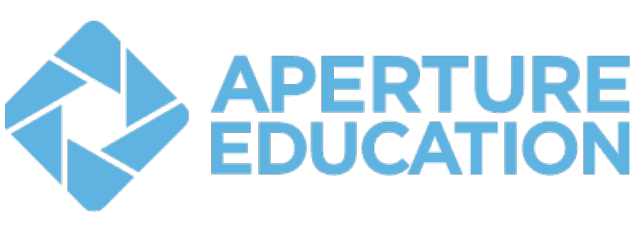Just as the rest of the education industry has learned, adapted, and pivoted over the last two and a half years, so too has ETS’s TOEFL® program. And while we have always been customer-centric, we have used this time to further reflect on what our stakeholders need and how we can best support them—whether it’s a student in China preparing for a graduate degree in London; an admissions office in Melbourne, Australia, extending an offer of admission to a student in Japan; an agent supporting a student in India whose dream is to study in Canada; a teacher in the US working to build their classroom’s English language skills; or any person, destination, or scenario in between. As we look ahead to the coming year, we are more laser focused than ever on providing the highest-quality tools and resources to all these groups to build and empower lifelong learning confidence in English.
Updates
The TOEFL iBT® test, our flagship assessment, continues to be the most widely recognized English language test globally, which is evidenced by its universal acceptance in the world’s most popular destination countries like the US, Canada, the UK, Ireland, Australia, and New Zealand—more than 11,500 institutions in over 160 countries worldwide. Institutions trust TOEFL iBT because of its ability to measure English communication skills—reading, listening, speaking, and writing—in an academic context and because of the high quality associated with the test’s design, development, delivery, scoring, and security.
Just prior to the pandemic, TOEFL iBT began a transformation to enhance the test-taker experience. We shortened the TOEFL iBT test by 30 minutes; implemented a superscore feature called MyBest® scores; enabled test takers to view their unofficial reading and listening scores immediately following the test; provided more free practice materials; offered many more testing dates and locations; and made adjustments that eased the registration process, to name a few things.
Since that time, we’ve grown the TOEFL iBT test from a single format to a range of formats and added a second high-stakes test to the portfolio. Doing so has allowed us to serve test takers and institutions and provide opportunities that are convenient, accessible, and safe, while catering to test takers’ unique preferences and individualized circumstances. What started as the TOEFL iBT test offered in test centers prepandemic has since grown to three test formats—test center via computer (TOEFL iBT), at home via computer (TOEFL iBT® Home Edition), and in select locations, test center via paper and pencil for the reading, listening, and writing sections, followed by the speaking section at home via computer (TOEFL iBT® Paper Edition).
Additionally, just over a year ago, we launched TOEFL® Essentials™, a first-of-its-kind test that uniquely combines the quality institutions trust with the convenience and friendliness that students want in one single test. It measures foundational elements of English proficiency essential for communication in both academic and general (daily life) contexts and provides institutions with additional insights into applicants’ skills beyond academic English settings (e.g., for interviews and internships), through components such as writing and speech samples and a short, unscored personal video statement. And it provides an affordable, accessible, and convenient option for test takers—roughly half the cost and half the length of other major English language tests. As of late August 2022, nearly 450 college and university programs around the world are accepting the test.
In addition, we continue to offer English language products that are critical to supporting younger learners—the TOEFL Primary®, TOEFL Junior®, and TOEFL ITP® tests—for monitoring, placement, progression, and feedback. Just this year, ETS and the National Education Examinations Authority (NEEA) released results linking TOEFL Junior scores with China’s Standards of English (CSE), enabling young test takers, as well as teachers and parents, to better evaluate their English ability, promote more targeted English learning, and improve English language skills. This was the second TOEFL product to complete this important research, following TOEFL iBT in 2019. Additionally, just a couple of months ago, the TOEFL Primary and TOEFL Junior tests were named approved learning tools by the Education Alliance Finland (EAF)—the first assessment tools to receive EAF’s “quality seal.”
It’s been a busy—but highly rewarding—couple of years, and we’re excited for what’s to come.
Looking Ahead
The transformation and growth of the TOEFL portfolio over the last few years has generated a great deal of novelty and innovation that has supported our stakeholders when they needed it most. We view the upcoming year as a way to dig deeper into what we’ve established—refining, expanding, and doubling down on our offerings, relationships, and initiatives. A few of our priorities for the remainder of 2022 and 2023 include:
- Increasing the acceptance of the TOEFL Essentials test so that more students and institutions can utilize scores for their study abroad journeys and recruitment efforts, respectively
- Investing significantly more time and resources in key markets, such as India, to further our on-the-ground presence and better serve our stakeholders
- Expanding access to TOEFL iBT products
- Adding writing to the suite of skills assessed by the TOEFL Primary and TOEFL Junior tests
- Maximizing meaningful engagement with subsidiaries and partners
- Deepening relationships with key stakeholders in critical markets, especially English language teachers and educational consultants/agents, and providing them and their students with more tools, such as the Teaching Academic English course (for teachers) and the Official TOEFL iBT Prep Course (for students)
- Continuing to provide assessments that are high quality, trustworthy, valid, and reliable
- Keeping our stakeholders’ needs front and center in everything we do
This list is certainly not exhaustive, and as part of a mission-driven organization, our work is never done. We’re always looking at ways to ensure we’re showing up best where our stakeholders need us. What’s more, ETS recently appointed its seventh president and CEO in June, Amit Sevak. He believes in the fundamental power of assessment and in the importance of continuous lifelong learning. Under his leadership, we are poised for growth and success and look forward to the opportunities where TOEFL can realize our mission to advance quality to advance quality and equity in education for all learners worldwide.
Srikant Gopal is the executive director of the TOEFL Program at ETS, where he is responsible for the strategy, performance, and growth of the TOEFL portfolio of products.
He is a graduate of Birla Institute for Technology and Science (Pilani, India) and earned his MBA from Indiana University. To learn more about the TOEFL® Family of Assessments, visit www.ets.org/toefl.














